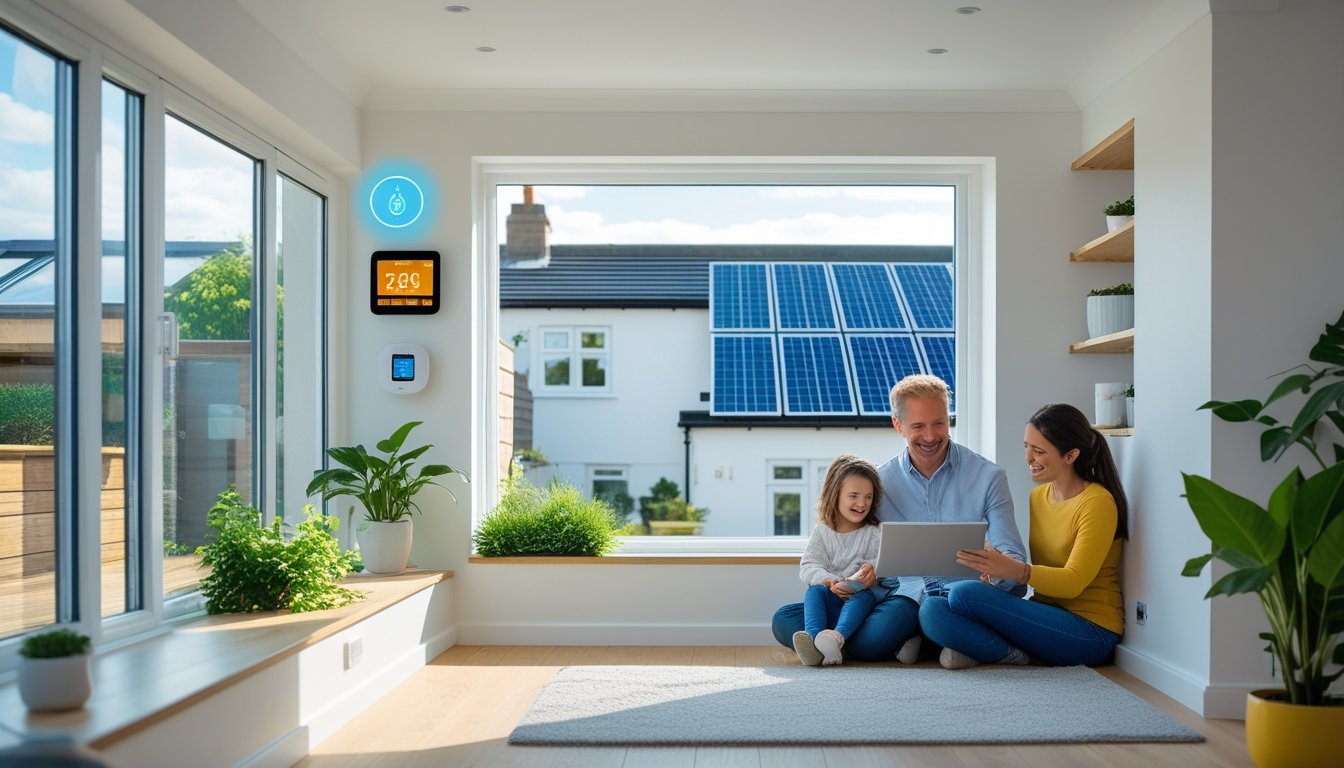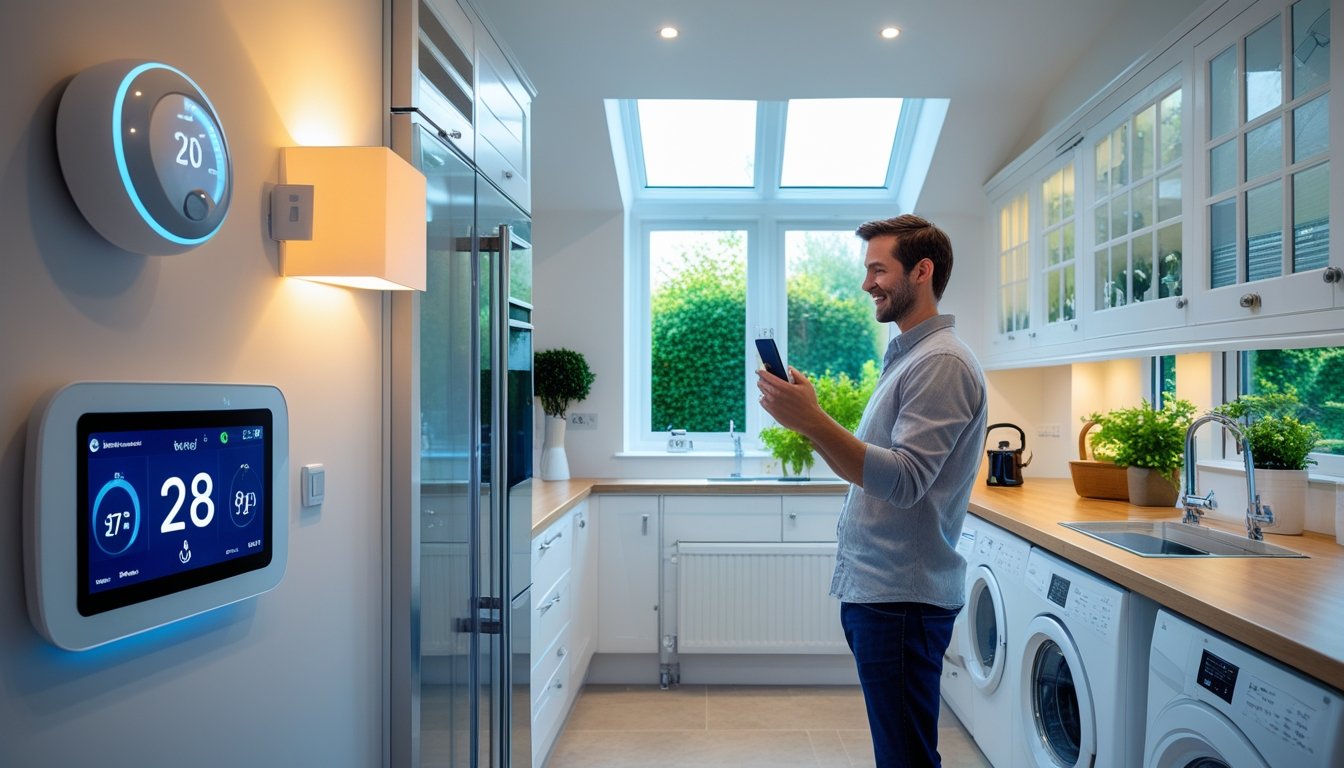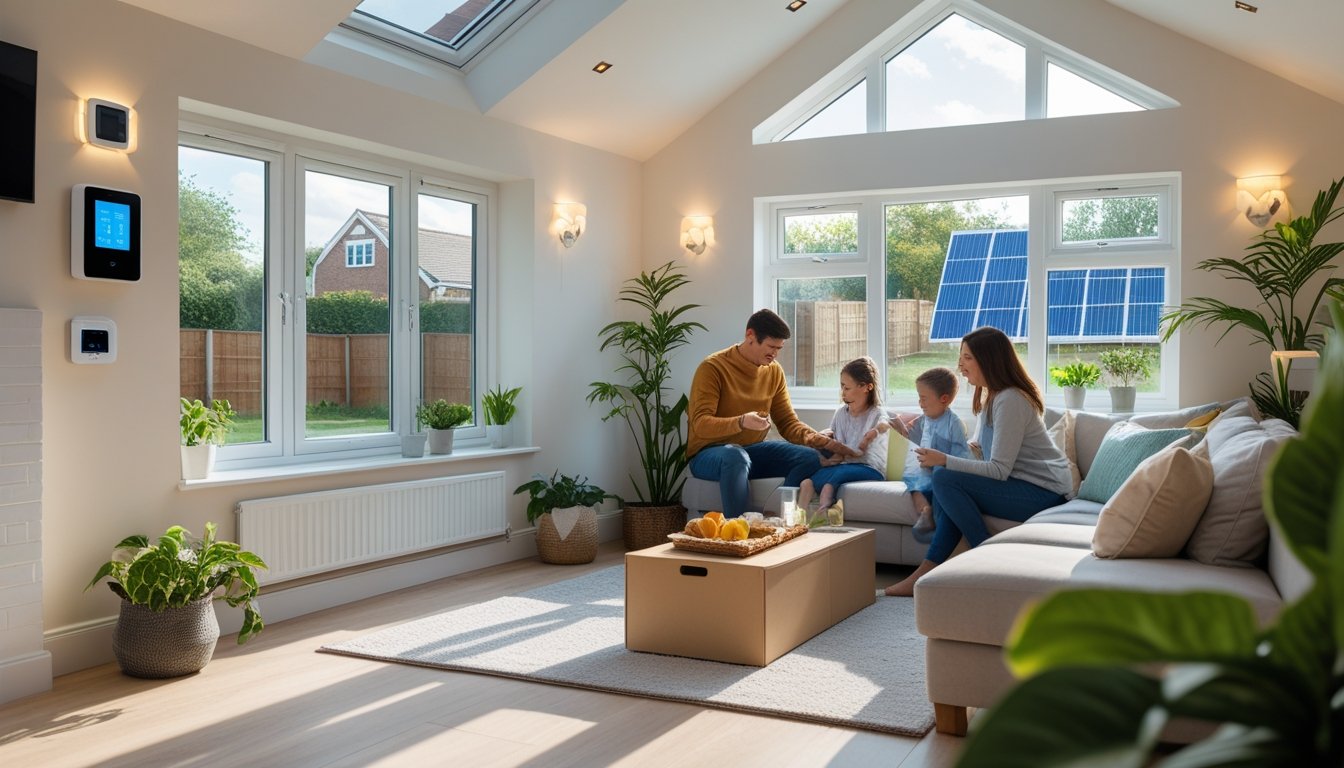Late updated: 19 Jun 2025 15:06
Written by: Oliver Bennett
Smart Ways To Improve UK Home Energy Efficiency: Expert Tips and Solutions
Exploring smart ways to boost energy efficiency in our UK homes is more crucial than ever. By adopting the latest technologies and practical strategies, we can significantly cut energy costs and contribute to a greener environment. Through modern smart systems, we have the power to better manage our energy consumption and save money at the same time.

Making thoughtful changes in our homes doesn't have to be overwhelming. Simple adjustments like upgrading insulation, installing energy-efficient boilers, and using smart thermostats can make a noticeable difference. These improvements not only benefit the environment but also offer immediate financial savings.
As we delve into various techniques for enhancing energy efficiency, we’ll uncover exciting opportunities that are both environmentally friendly and cost-effective. Join us as we explore these innovations and see how they can transform our homes.
Key Takeaways
- Smart technologies cut energy costs and emissions.
- Practical upgrades lead to immediate savings.
- Energy efficiency benefits our wallets and the planet.
Fundamental Strategies To Improve UK Home Energy Efficiency
Improving energy efficiency in UK homes involves various strategies that are both practical and cost-effective. Key areas include enhancing insulation and draught-proofing, upgrading window glazing, and optimising heating systems. These measures not only lower energy bills but also contribute to a more sustainable environment.
Insulation And Draught-Proofing
Proper insulation is vital for reducing heat loss in homes. We can start with loft insulation, as heat rises and escapes through the roof. Adding quality loft insulation can save a significant amount on heating bills.
Cavity wall insulation is another effective method to maintain warmth, especially in homes built with hollow walls. We should consider carefully sealing gaps around windows, doors, and floors to prevent cold draughts from entering. Draught-proofing is a simple yet efficient way to enhance thermal comfort and energy efficiency.
Upgrading Windows And Glazing
Windows play a major role in maintaining a home's temperature. Replacing single-glazed windows with double or triple glazing can significantly reduce heat loss. Double glazing consists of two layers of glass with an insulating layer between them, while triple glazing provides an additional layer for better insulation.
Opting for high-quality glazing not only improves a home’s energy rating but also reduces noise pollution. For existing windows, applying insulating film or installing secondary glazing options can serve as a cost-effective alternative, helping to increase the home's energy efficiency.
Efficient Heating Systems And Controls
Modern heating systems and smart controls offer increased energy efficiency. Upgrading to an energy-efficient boiler can lead to substantial savings. Smart heating controls allow us to programme heating schedules, thus reducing unnecessary energy use.
Implementing thermostatic radiator valves lets us control the temperature of individual rooms, optimising comfort and efficiency. Regular maintenance, like bleeding radiators and checking pressure, is also important to keep heating systems running efficiently.
Engaging with these strategies can significantly enhance energy performance and reduce overall energy consumption. By focusing on these key areas, we can make our homes more sustainable and environmentally friendly.
Smart Technologies And Practical Tips For Saving Energy

Improving energy efficiency at home involves a combination of smart technologies and practical habits. Implementing smart meters, renewable energy solutions, and conscious everyday actions can significantly reduce energy consumption and costs.
Smart Meters And Monitoring Usage
Smart meters are a vital component in managing our energy usage effectively. They provide real-time information on energy consumption, allowing us to monitor usage and identify high-cost habits. Many energy suppliers in the UK install smart meters at no extra cost, helping homeowners reduce their bills by making informed decisions.
Beyond just tracking usage, some smart meters work with apps to alert us to peak usage times, enabling us to adjust appliance operation. This can lower our energy bills while contributing to reducing carbon emissions. Using data effectively is key to efficient energy management.
Renewable Energy Solutions For Homes
Investing in renewable energy solutions like solar panels can be transformative for home energy efficiency. Solar panels harness sunlight to provide clean electricity and can significantly cut energy costs.
The installation of solar panels might have an estimated cost upfront, but government initiatives like the Energy Company Obligation (ECO) can offer financial support. This scheme aims to reduce fuel poverty by helping with costs associated with home improvements. Achieving net zero emissions while also saving money on bills can make solar energy a compelling choice.
Everyday Energy Saving Habits
Small changes in daily routines can lead to substantial energy savings. Turning off lights when leaving a room and switching to energy-efficient LED bulbs are simple yet effective actions. Devices left on standby consume power, so using a standby saver or manually switching them off can lower energy costs.
Spending less time in the shower and avoiding the tumble dryer also contribute to reducing power consumption. Making these conscious choices not only helps save energy but also reduces electricity bills.
Financial Support And Programmes
In addition to personal efforts, various financial support mechanisms and programmes can aid in improving home energy efficiency. Home Energy Scotland and Citizens Advice provide guidance and assistance to those looking to save energy and lower their fuel bills.
Additionally, the Energy Company Obligation offers support for mortgage holders looking to fund home improvement projects that enhance energy efficiency. By tapping into these resources, we can make informed decisions and updates to our homes, furthering our journey towards sustainable living and reducing carbon footprints.
Frequently Asked Questions

Improving home energy efficiency in the UK involves smart insulation methods, government schemes, and the use of technology. We explore various strategies to lower energy usage and costs.
What are the most effective insulation methods to prevent heat loss in homes?
Effective insulation is key to maintaining a warm home and reducing heat loss. Methods include using high-quality loft insulation, cavity wall insulation, and double glazing. Properly insulated doors and floors also make a significant difference. By implementing these techniques, homeowners can significantly decrease their heating demands.
How can homeowners in the UK apply for the government insulation scheme?
Homeowners can benefit from government support through schemes like the ECO4, which targets low-income and vulnerable households. To apply, check eligibility requirements online, and contact approved energy suppliers or local authorities. They will guide you through the application process and available options based on your circumstances.
What are some practical steps to reduce electricity consumption in domestic settings?
Simple actions, such as turning off lights when not in use and unplugging unused devices, contribute greatly to energy savings. Opting for LED bulbs and using energy-efficient appliances also reduces consumption. Additionally, regular maintenance of heating systems ensures they operate efficiently, further saving electricity.
In what ways can smart technology assist in saving energy within the home?
Smart technology plays a crucial role in energy conservation. With smart thermostats, users can control heating remotely and set schedules to match their lifestyle. Smart meters provide real-time feedback on energy usage, encouraging more efficient habits. These technologies help reduce unnecessary energy expenditure.
How does upgrading to energy-efficient appliances impact energy bills?
Switching to energy-efficient appliances can lead to noticeable reductions in energy bills. Appliances with high energy ratings use less electricity, translating to significant savings over time. For instance, replacing old fridges, washers, and dishwashers with modern equivalents lowers energy consumption considerably.
What strategies can households adopt to maximise savings on their energy bills?
Households can adopt strategies such as comparing energy tariffs regularly to ensure they’re getting the best deal on their rates. Implementing zone heating ensures only occupied areas are heated. Encouraging family members to be mindful of their energy use also fosters a culture of conservation at home.
